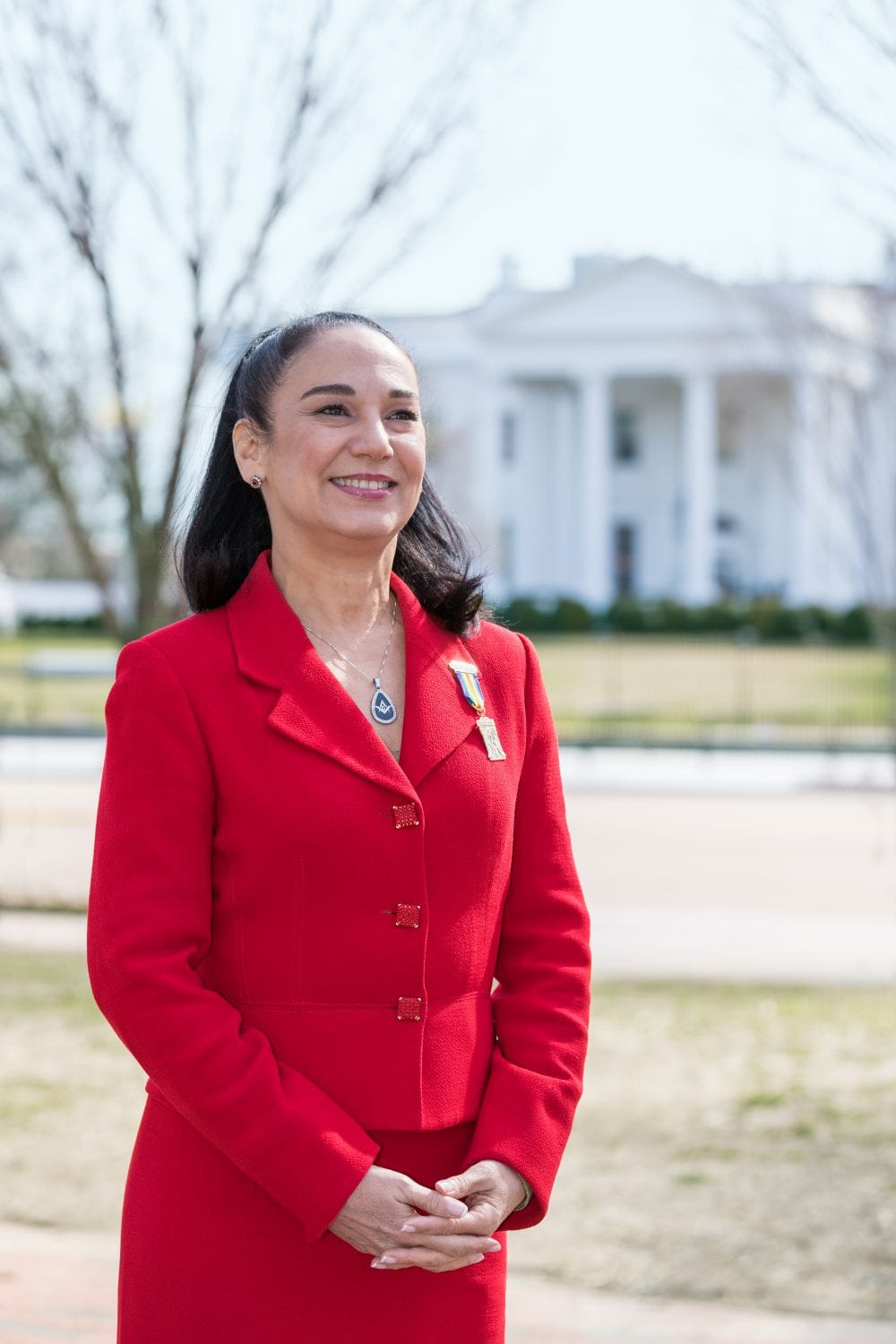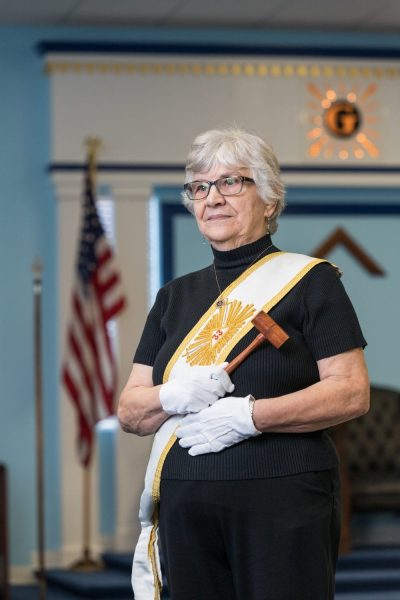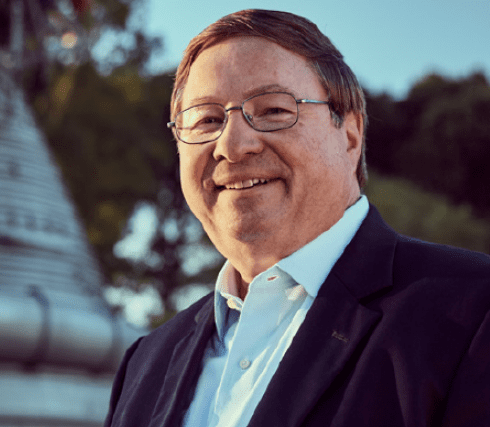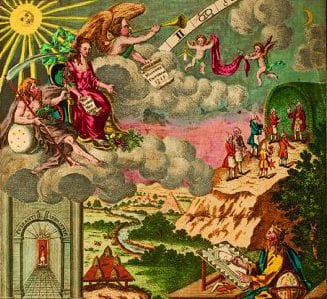
Women of Freemasonry – Lourdes Elias
Women have been practicing Freemasonry for centuries.
Meet four women who are leading and building feminine
and mixed lodges today.

Anne-Marie has been an active Freemason since 1971. Busy with her personal life, career, and family, she says the 24-inch gauge originally resonated with her as she juggled all of her responsibilities. The lessons she learned in Freemasonry gave her the intention to make the world a better place than she found it.
“It starts with each one of us reflecting on our self and what’s going on around us, helping when and wherever we can. This can be in the form of donations to charities, volunteer work, or random acts of kindness. It can be as simple as a smile. Fraternally, we listen, we discuss, we try to understand other people, and sometimes, we agree to disagree. We do our best in a changing society.”
Now, as Anne-Marie reflects upon Freemasonry over the course of her life, she thinks about the acacia as a symbol of the universal qualities of Freemasonry, and how it grows and adapts however it can. “Male Freemasons today should know that women should have the freedom to choose and be treated equally, so we can help one another make the world a better place.”
How did you learn about Masonry?
I was initiated in 1971. I did not have Internet, so I had very little information, except the interaction I had with a sister who felt Freemasonry was for me. We came from a very small town, and she was always helping people, making a difference. She recommended me. I was initiated and I have been an active Freemason ever since.
Do Masons have a responsibility to make the world a better place?
For me, it’s more than responsibility. It’s a duty to make the world a better place for all than I found it.
How do you see this duty pursued within your membership?
It starts with each one of us reflecting on our self and what’s going on around us, helping when and where ever we can to make a difference. It can be donations to worthwhile charities, volunteer work or random acts of kindness. A simple smile can make a difference. Fraternally, we listen, we discuss, we try to understand and sometimes, we agree to disagree, doing the best we can in a changing society.
Is there any masonic iconography that specially resonates with you?
It has changed my life. At first, it was the 24-inch gauge, simply because it was difficult for me to handle everything between my personal life, my children, my professional life. Nowadays, I’m thinking about the acacia, because it is grown all over the world, and somehow for me it connects with how Freemasonry is universal, growing, adapting where ever it can, when ever it can.
What’s one thing that you would like male Freemasons who might not be familiar with women Masons to know about co-Masonry?
We are Freemasons and we all have been initiated. We strive for the same ideals, to better ourselves and work continuously for the progress of humanity. Male Freemasons today need to know that women should have the freedom to choose and be treated equally, so we can help one another make the world a better place.
PHOTO CREDIT: Tamzin B. Smith

Women have been practicing Freemasonry for centuries.
Meet four women who are leading and building feminine
and mixed lodges today.

Senior Grand Warden Arthur H. Weiss considers the universal nature of Freemasonry’s lessons, and its appeal to men and women alike.

On aprons and teapots, in the first degrees and the virtues and lessons of Freemasonry, feminine symbols are threaded into the very fabric of Freemasonry.